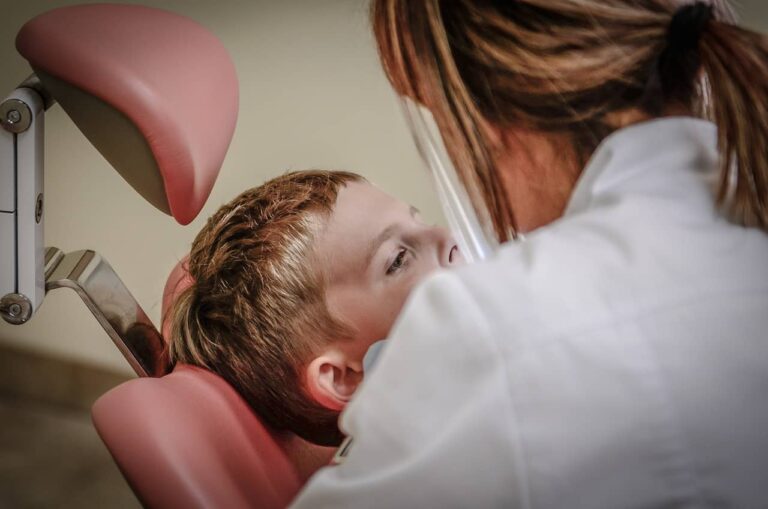Even if you clean your teeth every day, it is still recommended that you have your teeth checked by your dentist on a regular basis. Dentists can detect early indications of disease and provide appropriate therapy. They can even aid in the prevention of disease. Schedule your appointment with your local Five Dock dental clinic today to keep problems at bay.
What exactly is dental prophylaxis, and why is it necessary?
A term usually used for this is dental prophylaxis, which is to protect through preventing. At the dental office, this is referred to as either preventing oral cavity disorders such as gum disease or tooth decay or avoiding life-threatening disease in the body, which can infrequently arise as a result of dental therapy.
How is dental prophylaxis done?
1. As previously said, firstly, dental prophylaxis is typically performed as part of the protection from ailments. Because of this, the issue might manifest as gum inflammation or swelling, as well as tooth decay. Your dentist may advise you to do the following to control this.
· Every six months, have a dental professional examine you. A comprehensive examination by your dentist can detect and even prevent diseases that are difficult to detect or prevent at home.
· To have your teeth cleaned twice a year
· To have fluoride treatment.
2. Secondly, to prevent life-threatening conditions caused by dental treatment. This is frequently considered for patients who have certain heart problems. Antibiotics are usually provided prior to their dental treatments to prevent bacterial infection of their heart tissues.
What should I know about the dental prophylaxis?
The dental prophylaxis is a cleansing procedure that cleans your teeth and gums extensively. It is important for preventing the advancement of gum disease by removing tartar and plaque build-up, which can contribute to cavities and gum disease.
What is the difference between plaque and tartar?
Plaque is a clear film that adheres to the teeth and includes millions of bacteria. This, in conjunction with food debris and saliva, releases toxins that can cause tooth decay and gum inflammation. Plaque could be easily removed with regular oral hygiene practises such as brushing and flossing.
But, if this plaque is not removed from the teeth, it hardens into tartar, which cannot be eliminated by brushing alone. Scaling is required by a dental specialist to eliminate it.
Inflamed gums are caused by plaque and tartar. If left untreated, it progresses into a serious condition in which germs begin to eat away at your bone.
How frequently is dental prophylaxis performed?
Every 6 months, dental prophylaxis is advised. You should go to the dentist to have your teeth checked and cleaned. It is advisable to return every three months in rare circumstances where there is a high risk of gum disease and cavities.
What should you expect from your cleaning appointments?
Your dentist will examine you to rule out any concerns. They may use an x-ray to investigate a problem. The tartar will then be removed using a machine known as a scaler. Following that, your teeth are polished with a little brush and paste.
What is fluoride treatment?
Fluoride treatment is used as part of dental prophylaxis when there is a risk of cavities.
In gel, liquid, or foam form, a larger concentration of fluoride than that found in toothpaste is administered to your teeth. Since fluoride strengthens the outer layer of your teeth, it is done to reduce the risk of cavities.
What are the conditions for which antibiotic prophylaxis is recommended for dental treatment in Australia?
Those at danger of infective endocarditis or prosthetic joint infection are considered to receive dental antibiotic prophylaxis. Prophylaxis was developed to eliminate or lessen serious infections induced by invasive dental operations.
Usually a single dose of an antibiotic will be given to you around an hour before some dental treatments.
How can I know if I have endocarditis?
You will begin to feel unsettled and unwell. If this persists, you will get a fever, night chills, weakness, and muscle soreness. But, your doctor must confirm this. See your doctor if you notice any of these symptoms and suspect you have endocarditis.
Who Should Get Antibiotics Before a Dental Procedure?
· If you have had bacterial endocarditis in the past.
· You experienced any type of heart valve problem and had it fixed in some way, resulting in an artificial valve.
· you got a heart transplant
· were born with a cardiac problem
What Dental Procedures Should Antibiotics Be Used For?
The updated report recommends; prophylaxis be given to all the people with the aforesaid heart issues, but not for every type of dental treatments.
The guidelines says that you will be given an antibiotic if you have the mentioned heart issues along with that, the interior lining of your mouth is punctured through dental treatments that involve treatment of gum (around the teeth and bone) or the tip of your tooth.


